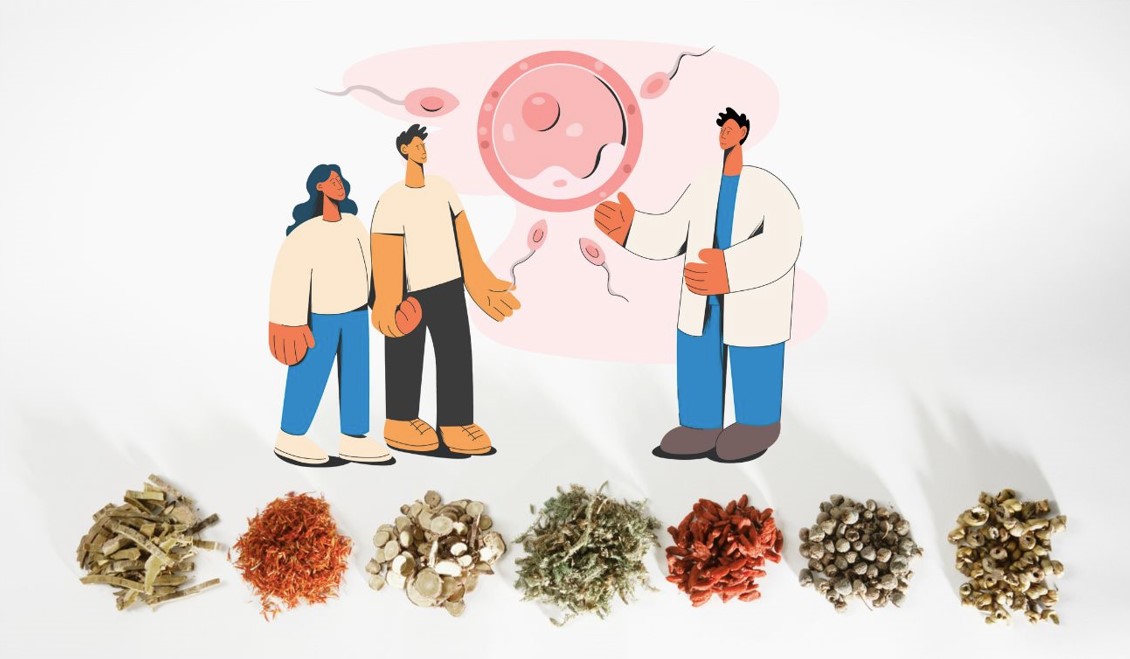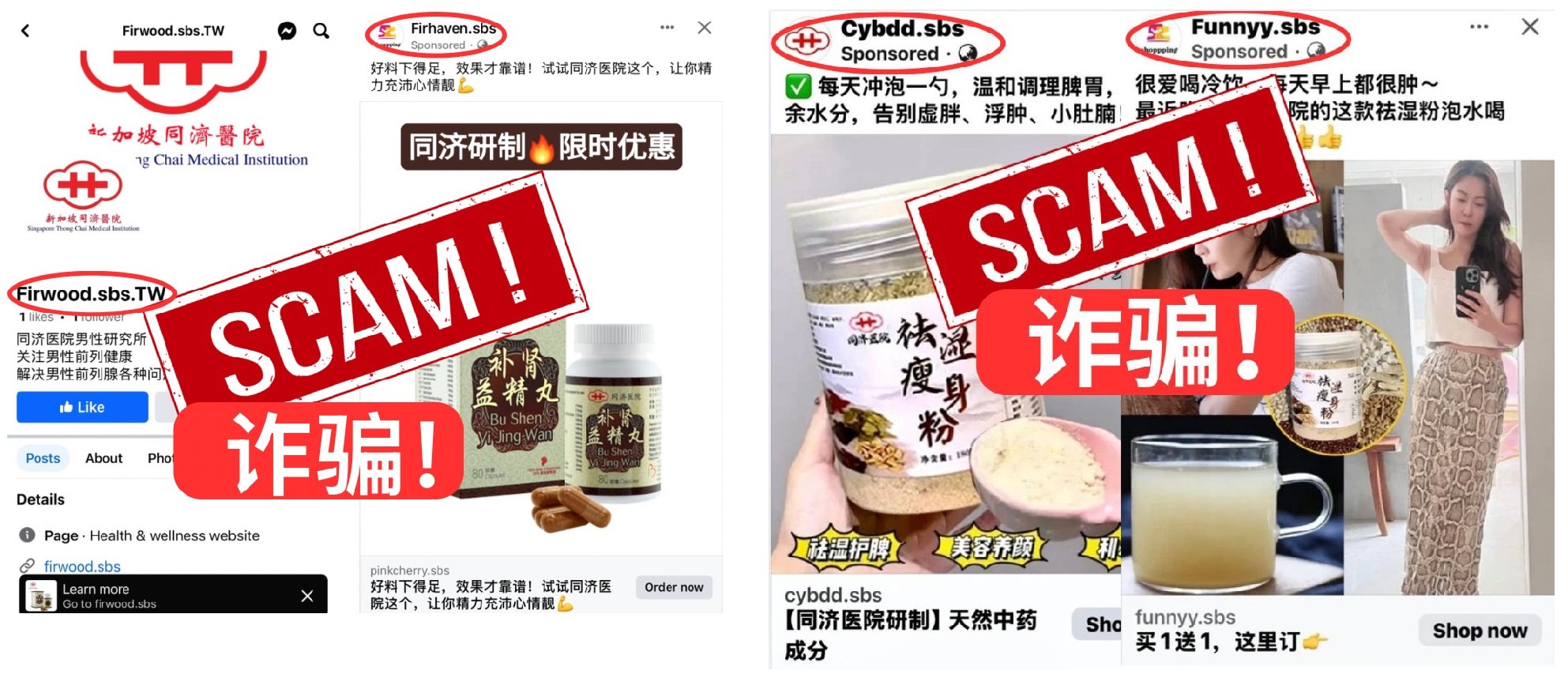In-vitro fertilisation (IVF) is a type of assisted reproductive technology (ART), in which mature eggs are fertilised by sperm in a laboratory setting, and then transplanted back into the uterus to be developed. IVF currently has the highest success rate among the various fertility treatments.
Researches show that pregnancy outcome in IVF patients is affected by multiple factors, such as age of patient, ovarian condition, etc. Traditional Chinese Medicine (TCM) can help to improve pregnancy outcomes in IVF patients via improving the quality of eggs, reducing poor ovarian response, improving uterine lining and endometrial receptivity.
Hence, a literature review of three randomised controlled trials (RCTs) and one meta-analysis was conducted to examine the effectiveness of Chinese herbal medicine (CM) on the pregnancy rate of IVF patients, as well as the safety and side effects when using CM on patients undergoing IVF.
From the RCTs studied, CM taken three months before ovarian stimulation improved the condition of poor ovarian reserve by increasing the number of eggs retrieved, number of successful fertilisation, number of high quality embryos (p<0.05); CM taken two weeks before ovarian stimulation to three weeks after embryo transplantation improved the quality of oocytes and endometrium quality, by increasing endometrium thickness, rate of high quality embryos, and biochemical and clinical pregnancy (p<0.05); CM taken before retrieval of eggs to three months after transplantation improved overall pregnancy condition and live birth rate (p<0.01), by increasing the rate of successful implantation and clinical pregnancy (p<0.05), and decreasing the rate of miscarriage (p<0.05).
A meta-analysis of 43 papers also revealed that the usage of CM in IVF patients increased the rate of clinical pregnancy and live birth rate (p<0.05). It was also indicated that the most commonly used herbs from the 43 papers, are herbs with the properties to nourish the liver and kidney, mainly Cuscuta chinensis (菟丝子), Rehmannia glutinosa (熟地黄), Angelica sinensis (当归), Paeonia lactiflora Pall (白芍), Lycium barbarum (枸杞子), Cyperus rotundus (香附), Ligusticum striatum (川芎), Ligustrum lucidum (女贞子), Dioscorea polystachya (山药), Atractylodes macrocephala (白术), Glycyrrhiza uralensis (甘草), Wolfiporia extensa (茯苓), Cornus officinalis (山茱萸).
Adverse reactions to the CM were also monitored in the RCTs and meta-analysis, with no significant adverse effects reported, which might suggest the safety of usage of TCM herbs in IVF. However, more randomised controlled trials are needed for this conclusion.
References
- Mayo Clinic. In vitro fertilization (IVF). Mayo Clinic, 2022. Available at: https://www.mayoclinic.org/tests-procedures/in-vitro-fertilization/about/pac-20384716.(Accessed on: 4 June 2022)
- Ministry of Health Singapore. Response to adjournment motion on providing more help for those undergoing IVF. Ministry of Health Singapore, 2021. Available at: https://www.moh.gov.sg/news-highlights/details/response-to-adjournment-motion-on-providing-more-help-for-those-undergoing-ivf. (Accessed on: 5 June 2022)
- Meldrum DR, Silverberg KM, Bustillo M, et.al. Success rate with repeated cycles of in vitro fertilization-embryo transfer. Fertility and sterility. 1998,69(6):1005–1009.
- Ried K, Stuart K. Efficacy of Traditional Chinese Herbal Medicine in the management of female infertility: a systematic review. Complementary therapies in medicine. 2011,19(6):319–331.
- 何军琴,朱萍,李梦元,等.中药序贯周期疗法对高龄卵巢低反应患者在IVF-ET技术中的疗效观察.中国中西医结合杂志.2020,09:1032-1037.
- Guo J, Li D, Liu C, et.al. Effects of Chinese herbs combined with in vitro fertilization and embryo transplantation on infertility: a clinical randomized controlled trial. Journal of traditional Chinese medicine. 2014,34(3):267–273.
- 周薇, 雷磊. 固胎汤对反复胚胎移植失败患者体外受精胚胎移植妊娠结局的影响. 中医杂志. 2017,02:133-136.
- Kwon CY, Lee B, Lee SH, et.al. Herbal medicine in women undergoing in vitro fertilization/ intracytoplasmic sperm injection: A systematic review and meta-analysis. Complementary therapies in medicine. 2020,53:102528.
Click to download PowerPoint


